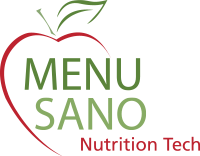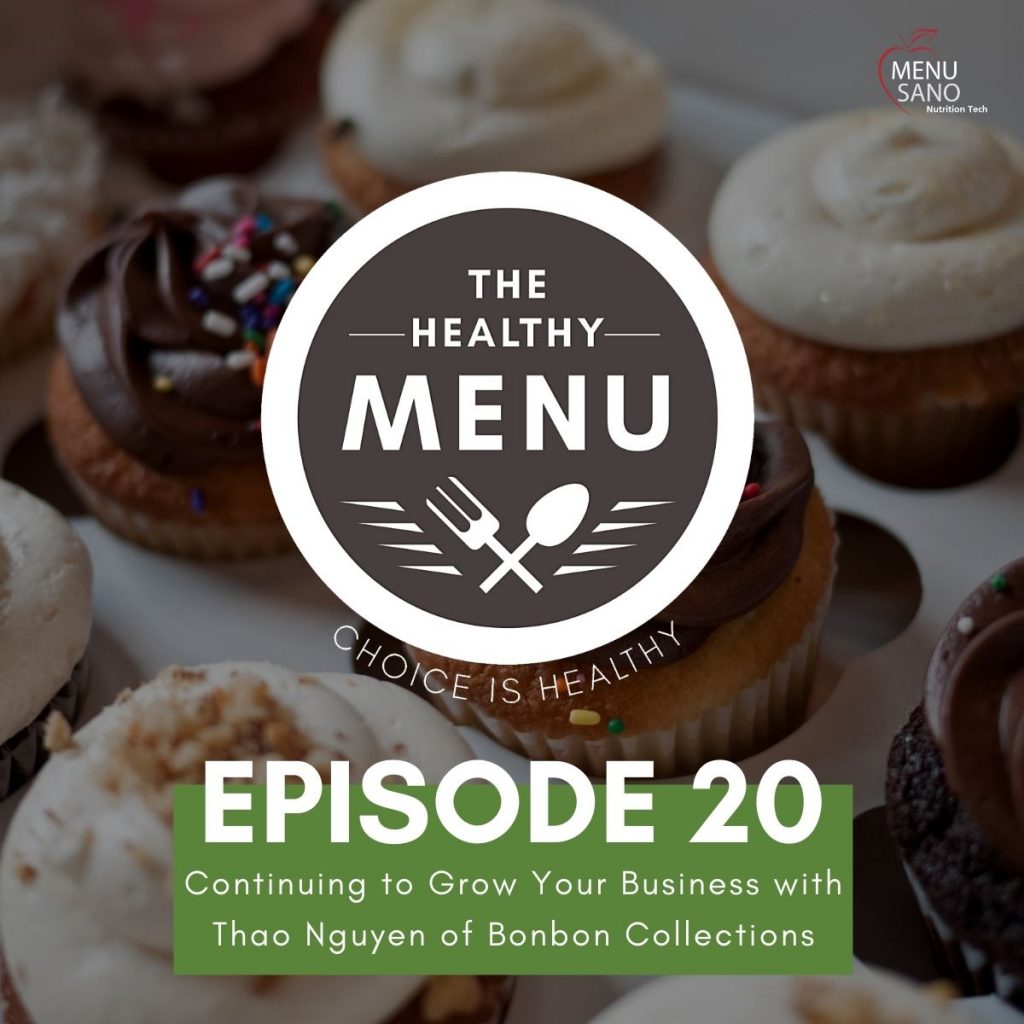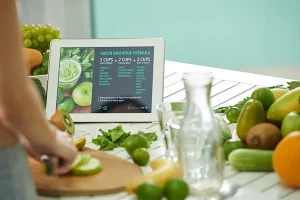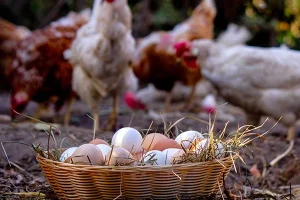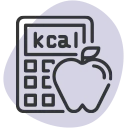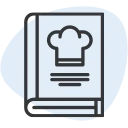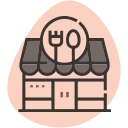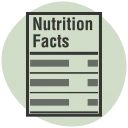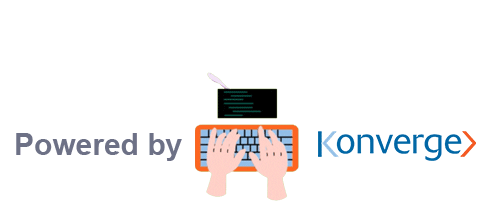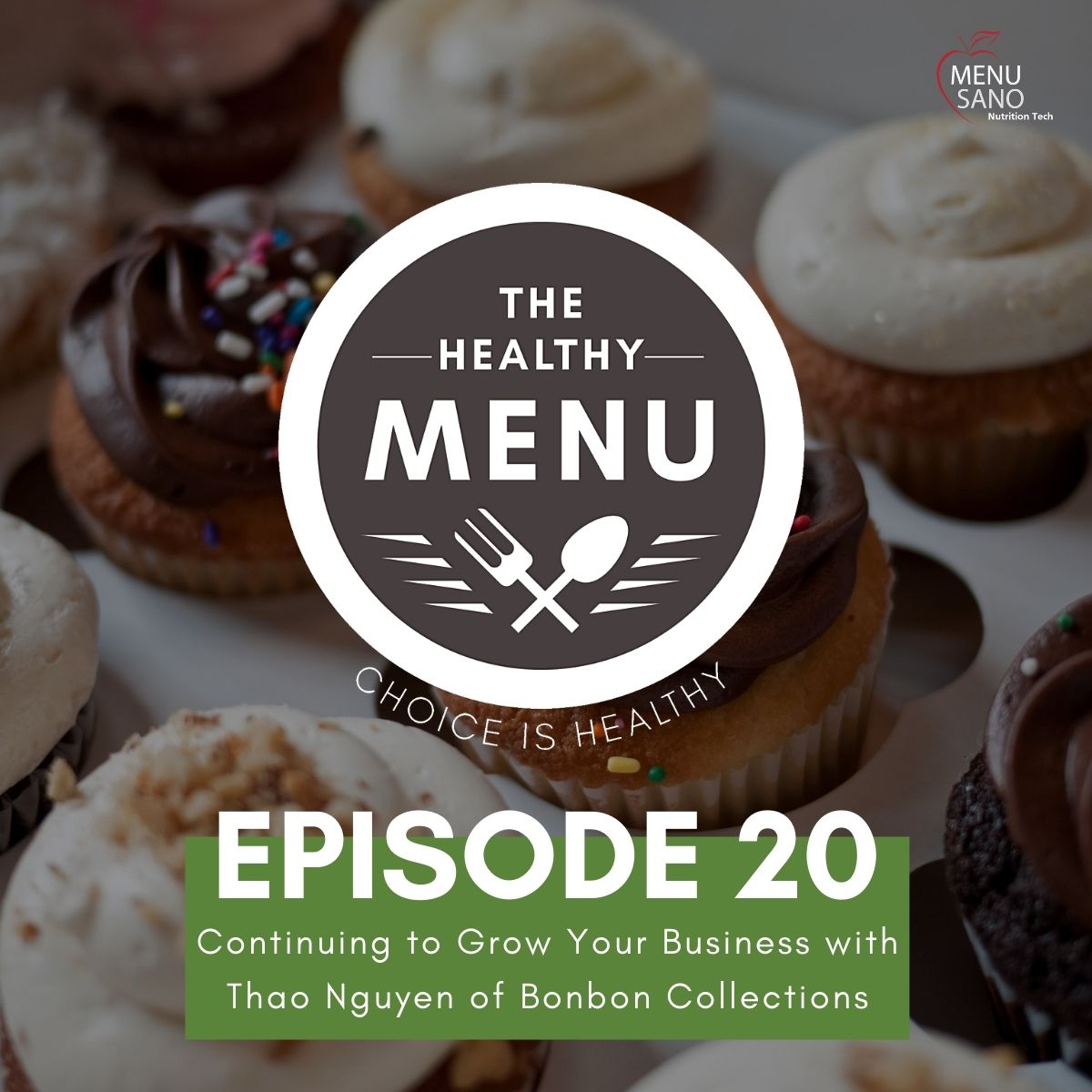 In this episode, we were joined by Thao Nguyen, who, in 2016 founded Bonbon Collections after wanting to be able to serve cakes and healthy sweets to her daughter. Because of allergies, Thao was afraid of her child feeling sidelined at school or at children’s parties.
In this episode, we were joined by Thao Nguyen, who, in 2016 founded Bonbon Collections after wanting to be able to serve cakes and healthy sweets to her daughter. Because of allergies, Thao was afraid of her child feeling sidelined at school or at children’s parties.
Bonbon Collections specializes in the manufacture of pastries, sweet treats, and gourmet pleasures free from the top 10 allergens; no gluten, no artificial dyes or artificial ingredients. 100% of Bonbon Collection’s products are natural and vegan.
In this conversation, Sonia Couto, MenuSano’s Founder spoke with Thao about the growth of Bonbon Collections, how it’s mission contributed towards the success of the company, their experience on Dragon’s Den, and so much more.
This conversation was taken from an Instagram Live recorded on November 2020.
The Healthy Menu Podcast – Episode 20: Continuing to Grow Your Business with Thao Nguyen of Bonbon Collections
Light Transcription
S: Bonbon Collections is one of MenuSano’s first clients after we launched version 2.0. I remember the day that she sent us a care package to the office and we loved her goodies. Bonbon was the ideal client for MenuSano.
Thao, I was just talking about how we met and how you’re one of MenuSano’s first clients. And you still are. I was just saying that you are the ideal client for us, not just because you need nutrition labels, but because your company has a mission behind it. You’ve set out on a mission to help people. I do want to get into that a little bit. Let’s get started now that you’re on.
With us today, we have Thao from Bonbon Collections and she owns a number of bakeries and she’s expanded her company and I’m going to let her get into those details. Like I said, she’s been a MenuSano client for quite a few years and during COVID, we’re using this opportunity to do these lives with some of our clients, with women entrepreneurs, and people in technology. It helps us tell our story. It allows others to tell their story. More importantly, it helps us promote each other.
Thao, I just love what you’re doing. We love your goodies. I remember when you sent us that care package. We ate everything. Why don’t you start by telling us a bit about yourself and about Bonbon Collections? I love your story and I really want you to share that with us.
T: Bonbon Collections is now a manufacturer of bakery items. We specialize in gluten-free, vegan, but also bakery items that are free from the top ten allergens. That means that we are also peanut-free, nut-free, dairy-free, soy-free, sesame, mustard, all ten of them. We are very proud to say that from day one, our goods are free from refined sugar. We are also free from food dyes, artificial flavors, all of those.
Basically, when my second daughter was born, she was born with a lot of food allergies. The combination of all of those food allergies were very difficult to deal with. What we could find on the market was not satisfactory. It was full of sugar, to cover the low quality of the ingredients. There were a lot of artificial flavors, colors, and stuff like that; stuff that I didn’t want my daughter to have because people with allergies have a weaker immune system. Obviously, you want the best things for them. So that’s why I started. I started as a small shop, as a very small business. It was tiny, it was 100 square feet production and selling point. Over two years, we opened three stores, and then we started to sell our products to grocery stores. We are now in our fourth year and we are over 800 point of sales all across the province of Quebec and now working across the rest of Canada. Yes, next is Toronto. Despite COVID, that’s what we’ve been working on and obviously it has been challenging. But now is a good time for each company that has a story, that’s got a mission, just like MenuSano, to really put our story through and connect with the end consumer.
S: You’re building this amazing product, your daughter had severe allergies, and you sort of set out to make her life a little bit easier. But you were a small shop, you were sort of baking everything on your own, with your staff, I assume? How do you go from that and the quality that you’re producing when you’re baking it by hand versus now, with mass production? How do you make sure that the quality is still there?
T: In our case, we remained true to our values and to our mission. We started the recipes just like any mom and dad would cook at home. With a simple recipe, clean label, clean ingredients, that’s how we started. That’s how we wanted things to scale up. It was very challenging because obviously we have a lot of restrictions; no regular flour, no butter, no eggs, all of those things. We had to play a lot of chemistry. That’s why we embarked on MenuSano very early on, because we needed a tool to tell us how healthy or unhealthy our things were. Sometimes even though we can play with the chemistry of the ingredients, it still needs to have satisfactory results in terms of taste, in terms of texture, and also in terms of nutritional value. At the beginning, we were doing per batch; 24 cupcakes. Now a batch for us is like 4,000 in one shop. The key is to remain true to your value, to your mission, and to why you started this. For us, it was about quality ingredients, simple ingredients, clean labels, and this is how we do it.
S: Now that your products are in grocery stores, what is the shelf life for one of your cupcakes, for example?
T: We decided to go preservative-free. Therefore, the only way for us to have a shelf life of like a year is through the frozen products. Now we’re selling frozen desserts that have got a one year shelf life. It has been tested for that with a lab. I think that if you truly start with quality ingredients, you can push the boundaries still there.
S: You’ve won a couple of awards for what you’re doing and you were also on Dragon’s Den. Tell us about that experience.
T: It was in our second year, just before we started the swap into the grocery channel. It was nerve-racking. It was the first time we were going on TV. It was great.
It was very interesting because we never had a chance to present our project at a higher level. We were used to selling our products in our own store. It’s our comfort level. There, you’re presenting it to a bigger audience and the stakes obviously are bigger. It was very stressful. The fact is that we’re a family business. My husband is working with me in the company. Our children obviously are also working in our company. I think that leadership skills and entrepreneurship skills need to get developed at a very early age. That’s what we’re doing with them as well in the business. Also, really showing them what our true value as a family is.
When we were presenting to Dragon’s Den, we showed them who we really are; and that what you see is what you get. That’s how our products are as well. I think that’s what they liked the most about it.
S: Well, you represent your brand, right?
T: Absolutely. The company and the brand share the same value as the individuals. We have such a strong company culture. All the team members share the same mission. We share the same values. We want what is best. Our brand is all about inclusion. We want everybody to feel included. Our products are catered and safe for people with food allergies or food restrictions. It’s really good and people with no food allergies or whatsoever really enjoy them. It tastes real. It’s the real deal.
S: Your products are not just allergen-free, they’re also vegan, correct?
T: Absolutely.
S: If you don’t have allergies but you’re vegan, you can enjoy those as well. I’ve tasted them and they taste like a regular cupcake.
I’ve tasted some things that are vegan and allergen-free and it tastes sort of like drywall. It was so nice and refreshing to see a product that is conscious about a whole market out there of people that are suffering with allergies.
How difficult was it for you to figure out all of these different allergens and not have them in your food? I can’t even imagine what you went through to figure it out.
T: We’ve been doing so many rounds of recipes and tests in-house and everything. The hardest point was not to integrate any manmade chemicals. You can find a substitute quite easily when you work with labs and when you work with chemists. That’s not what we wanted. We wanted something that a mom could have done herself with all of the pantry items that she would have at home, so it would taste like the real deal. That’s what we wanted. It was very difficult and the way we went about it was instead of focusing on the negative, we focused on the things that we can use. There are only ten things that we can’t use and obviously all of the animal products. What can we use instead? It’s more about creativity and playing what you have in your hands.
That’s what I’m teaching my children too when they’re bored. Well, they’ve got so many things to do. That’s really creativity, just use whatever you have kind of mentality.
That’s really our approach when we train new bakers over here in the team. Instead of focusing on what you can’t have or what you don’t have, focus on what you have and be creative about it. So, that’s what we do.
S: When you and I first met, you were just starting out the bakery. I remember when you reached out and you mentioned you were now going to three bakeries, and all of a sudden you’ve become this massive production. You’re now providing your products to grocery stores. How do you go from being an entrepreneur, running a small, little bakery, to a CEO of a massive distribution? What’s that journey been like for you?
T: It has been a rollercoaster, definitely. I think that the key to success in that, (and I think you would agree with me, with you being a great CEO as well of a really expanding company, which is very impressive too) you need to surround yourself with professionals, with people you can trust. Be humble as well, meaning that you know what you’re good at, you know where your areas of improvements are, and then surround yourself with people who are better than you in those areas, who can bring you to the next level. You have your strengths and you know, it’s about being humble. Yes, I could do it, but I won’t do it as well. I will just outsource and give those responsibilities to people who can probably do it better and faster than me. Although, I can do it and that makes a big difference. It’s true for your team, it’s true for your suppliers. In four years, we’ve had such a huge growth. For the food industry, it moves very fast, that’s what everybody tells us. It’s about really surrounding yourself with the right people.
S: Was it hard for you to let go of the things that you were used to doing yourself and start putting that off to other people? Was that a challenge for you to go through?
T: Not really because I’m someone who is not a control freak, I’m a perfectionist. Although I’m not a baker by training, I became a baker over time. I’m a perfectionist. What a perfectionist wants is the best. I wanted to be perfect and if I know that someone else can make it better, I’m going to choose that option.
S: Knowing what you know now, what advice would you give to yourself in ten years?
T: Maybe, get ready for COVID-19 pandemic.
S: How has that affected your business?
T: Well, over here in Quebec, because it’s a bit different. If you’re in Ontario or in other provinces, the Quebec province has been hit very badly right from the start. The second wave is a bit milder versus the first wave. It has been very nerve-racking for us, in the sense that over night, everything was close over here. The thing with us is that even though it kind of reopened between the two waves, the thing is that from the moment people can’t gather, they don’t celebrate. If they don’t celebrate, they don’t have cakes. They have no reason to have distance. They’re at home and they’re surrounded by the same people. It has been very challenging in that sense.
I think that what made us go through this pandemic in a very positive way is that we are a small structure. This has been our strength from the beginning. We are in control of everything from the beginning. Yes, we are outsourcing a lot of things but we are in control of the whole product process. Overnight, over 24 hours, we swapped our whole business, which was retail based. We swapped it into online business, overnight. We had the structure with the website and everything, and we created a brand new line of product just catered for the web that worked really well for us during the pandemic. That saved all of the furniture over here.
When it was quieter, we just focused on our distribution. We just focused on what we can do now and how do we prepare for the future? During that time when it was quieter for absolutely everybody, we took the opportunity to actually work on our partnership with the retailers; with the grocery stores, with the distributors, with the logistic transporters, and everyone. We got them on board. We worked really hard during that quieter period to get things ready as soon as they reopened the economy, we were ready to go. That’s how we’ve been getting the ball rolling.
S: What do you feel food entrepreneurs should know today in order to be successful?
T: I’m biased towards the very natural approach. What we haven’t mentioned about our business is that from the very beginning, we’ve been very mindful about the environment. I think that in the food industry because the margins are so low and we can see it now especially with this pandemic. All of the costs have gone up like crazy. What’s gonna make a difference is that first and foremost, work on your relationships with your partners. That’s going to make a huge difference. The second thing is to be true to your values. Our value is all about quality, natural ingredients, clean labels, and all of that. Even though there’s a pandemic, even though people don’t celebrate as much, if they stick to your value that rings a bell to them, they’re going to stick to your brand and your product.
The third thing is to be mindful of all of your costs. At the beginning I was so careful about not having wastages in our production. We don’t have wastages in our production. Normally, in the food industry, you always have a lot of food being wasted. In our case, our wastage is not even 0.01%. Every wastage is reused in the production line straight away. At the beginning, yes it was very costly to make all of those models, to work out a way to reuse all of those wastages. But in the long run like today, in a pandemic, those wastages, it’s a lot of money. Because we have none of those, it’s not lost money. That’s how you control your cost better without diluting the quality, the values of your brand and your product. That would be my advice for food entrepreneurs nowadays because it’s challenging. There are so many layers that you have to give percentages to. And that’s how the business is made in the food industry. For us, the key to success has been sticking to those different points.
S: What’s next for Bonbon?
T: Well, what’s next for Bonbon is that we’re working on expanding again. We moved last year into a huge facility. We doubled our production facility with a lot of machines as well that allow us to keep the quality of our products, but doing it at a bigger scale. Basically, that was to prepare to get to outside of Quebec. We test a lot of things over here in the province. We are obviously expanding our distribution deeper into the province. Our big plan is to move into Ontario and the rest of Canada. That’s what we’re working hard on and that’s what you’re going to see in the next coming months.
S: Do you still have the bakeries?
T: We do have. We still have the stores. The one that is at the factory, it’s actually a counter. During COVID, obviously we’re not opening it to anybody. You have to order. It’s a click and collect point of sale.
S: Just to wrap up, is there anything that you want to add to the viewers? I know that your business is all about this beautiful mission that I absolutely love. Do you want to end with a piece of advice that you want to share?
T: I think the spirit is very hard for everybody. Like for everything in life, for everything that we have approached, for example, when my daughter was diagnosed with multi-allergies, it was like my whole world collapsed. All I knew was that she won’t have cakes, she won’t have chocolates, she won’t have all of those things, all of those pleasures in life. There were two ways to go around it; either you focus on what’s dawning on you and what’s happening, or you focus on the opportunities. I think that’s the way I have chosen, to focus on the good things rather than what was happening to me.
During this pandemic, I know how hard it has been also for all of my colleagues in the food industry. Yes we are an essential business, but it hits us in a certain way. So, it’s really hanging in there. I think that the vaccine will not solve everything because consumers have changed the way they consume and choose their products. I truly believe that if you are true to your mission, if you are true to your story, stick to it. They will appreciate it. There will be better days.
S: You live and breathe your brand because it’s what you believe in and I think that’s just great. Thao, thank you for joining us. We wish you the best and keep using MenuSano!
Read more: Bitesize: The Benefits of Labelling
